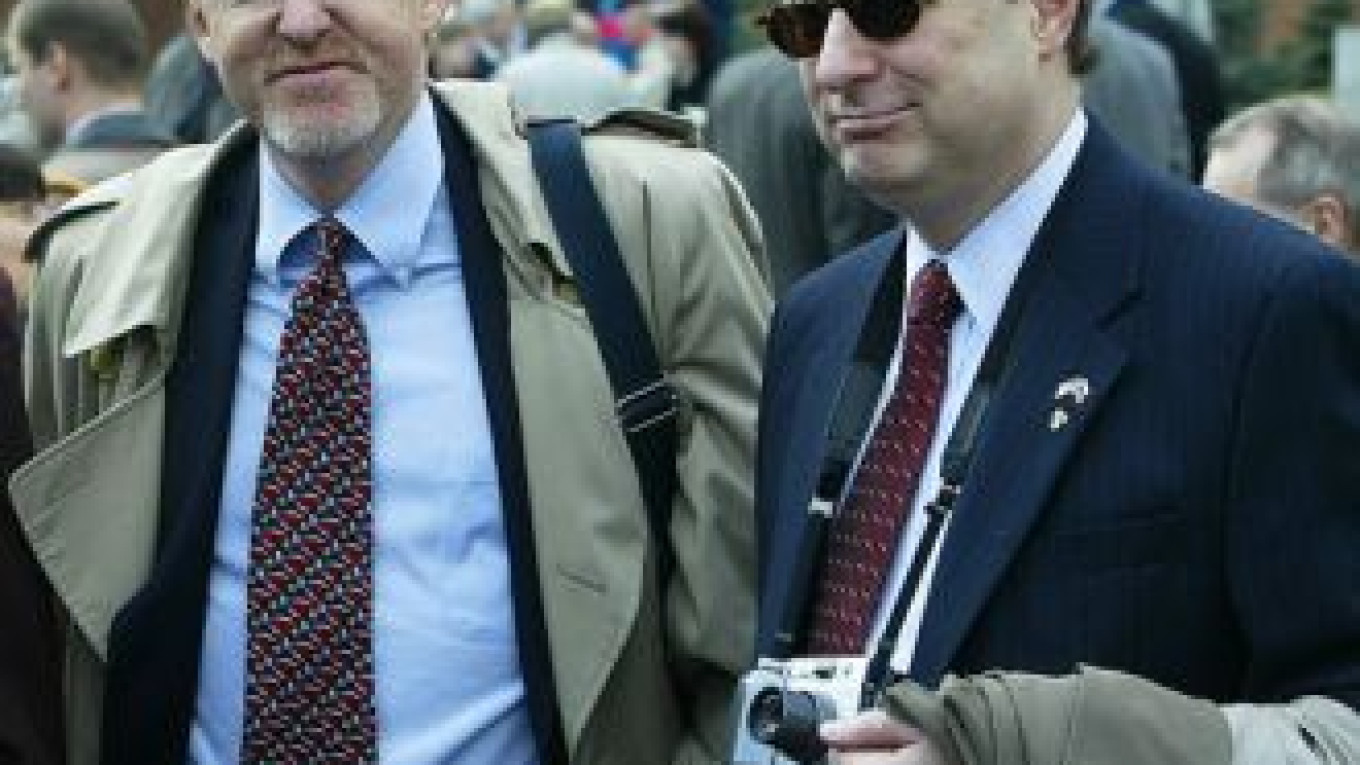NATO Deputy Secretary General Alexander Vershbow will attend a high-level conference on missile defense in Moscow next week, a senior official for the Western military alliance said Monday.
Russia's Defense Ministry plans to use the May 3-4 conference to address Moscow's growing reservations about a European missile shield, which NATO leaders are supposed to initiate at a summit later next month in Chicago.
A former U.S. ambassador to Moscow, Vershbow served as assistant secretary of defense before moving to NATO this February.
He will arrive with a small delegation for for the conference next week, the NATO official told the Moscow Times on condition of anonymity, because the news had not been made official yet.
The fact that the alliance is dispatching its second-highest ranking official signals that it wants the talks to continue despite recent difficulties, said Alexander Konovalov, an analyst with the Institute for Strategic Assessments.
NATO's discussions with Moscow to develop the shield jointly have stalled and President Dmitry Medvedev has threatened to station rockets in the Kaliningrad region bordering Lithuania and Poland, if the missile system goes ahead without Russian participation.
Foreign Minister Sergei Lavrov reiterated the Kremlin's position last week by demanding "clear and hard guarantees" that the shield won't be directed against Russia. Lavrov stressed that an offer by NATO Secretary General Anders Fogh Rasmussen to reiterate that both sides won't use force against each other — as stated in the Russia-NATO founding act of 1996 — was not sufficient.
Alliance officials have made it clear that they won't give Moscow any legal guarantees because they won't get passed its members' parliaments, including the U.S. Congress.
However, Rasmussen repeated an invitation to set up a joint data exchange center and a coordinated defense center with Russia, allowing it to see "with her own eyes" that the system is not directed against it.
"We do not consider Russia a threat to NATO countries, to NATO territory, to NATO populations. And Russia should not consider NATO a threat towards Russia," Rasmussen said after talks with Lavrov last week.
The alliance plans to officially declare the missile shield's first phase — including a radar in Turkey and on U.S. ships stationed in Spain — active at the May 20-21 summit in Chicago. It is unclear whether any Russian officials will attend the event.
The missile shield is not only subject to criticism from the Kremlin but also from Western scientists who question whether it will ever work. A report from the U.S. Defense Science Board, a Pentagon advisory group, concluded last year that the system's early phase radar ranges are too short to be effective.
The U.S Missile Defense Agency rejected those findings, The Associated Press reported this past weekend.
Agency spokesman Rick Lehner also said the U.S. administration was looking into a report by Congress' nonpartisan Government Accountability Office, which said pressure to meet deadlines led the Defense Department to order interceptors that have not even been tested.
A Message from The Moscow Times:
Dear readers,
We are facing unprecedented challenges. Russia's Prosecutor General's Office has designated The Moscow Times as an "undesirable" organization, criminalizing our work and putting our staff at risk of prosecution. This follows our earlier unjust labeling as a "foreign agent."
These actions are direct attempts to silence independent journalism in Russia. The authorities claim our work "discredits the decisions of the Russian leadership." We see things differently: we strive to provide accurate, unbiased reporting on Russia.
We, the journalists of The Moscow Times, refuse to be silenced. But to continue our work, we need your help.
Your support, no matter how small, makes a world of difference. If you can, please support us monthly starting from just $2. It's quick to set up, and every contribution makes a significant impact.
By supporting The Moscow Times, you're defending open, independent journalism in the face of repression. Thank you for standing with us.
Remind me later.


